THE SPOILS OF PEACE: DRUGS, TERROR AND TYRANNY
According to Breitbart News, the FARC is the third richest terrorist group in the world, earning an estimated $600 million dollars a year, mostly through drug trafficking. A recent DEA report revealed the FARC syndicate works in concert with Mexican Drug Cartels to access U.S. markets. To enter the European market, the FARC partners with Al-Qaeda, according to Moroccan and Spanish news sources — It’s an impressive global network of drug traffickers and terrorists
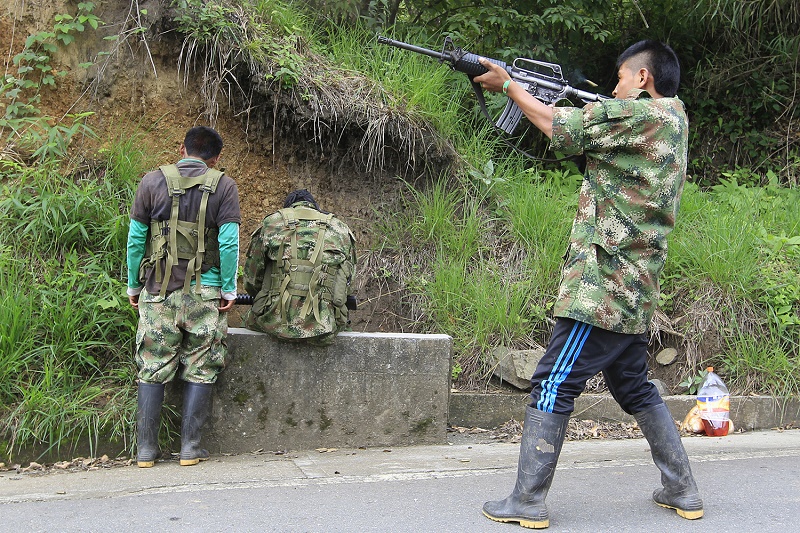
A member of the Revolutionary Armed Forces of Colombia (FARC) fires his gun in the general direction of soldiers stationed about 1.5 km (about 1 mile) away in the mountains of Caldono, Cauca province June 4, 2013. The rebels set up explosives on the Caldono-Toribio road to prevent the approach of government troops trying to regain territory held by the FARC in Cauca. REUTERS/Jaime Saldarriaga (COLOMBIA - Tags: SOCIETY CIVIL UNREST MILITARY POLITICS) - RTX10BWS
The Spoils of Peace: Drugs, Terror and Tyranny
According to Breitbart News, the FARC is the third richest terrorist group in the world, earning an estimated $600 million dollars a year, mostly through drug trafficking. A recent DEA report revealed the FARC syndicate works in concert with Mexican Drug Cartels to access U.S. markets. To enter the European market, the FARC partners with Al-Qaeda, according to Moroccan and Spanish news sources — It’s an impressive global network of drug traffickers and terrorists

By Lia Fowler*
November 12-2015
On November 6, 1985, an alliance between Colombian drug lord Pablo Escobar and the terrorist group M-19 resulted in the violent siege of Colombia’s Palace of Justice. M-19, financed and armed by Escobar, murdered 15 Supreme Court magistrates, 29 civilians and 11 members of the armed forces, by gunfire, grenade attacks and immolation. For Escobar it was an opportunity to derail the Court’s extradition deliberations; for the M-19 it was an attempted coup to establish a communist dictatorship. The siege failed because the Armed Forces, led by General Armando Arias Cabrales, and Colonel Alfonso Plazas Vega defeated the terrorists, saving 263 lives in the process. But thirty years on, the alliance between drugs, communism and terror has been fully consummated in the form of the narco-terrorist group FARC – and Colombia is on the brink of becoming a narco-failed State.
The ongoing peace negotiations between President Juan Manuel Santos’ government and the FARC presume that the FARC is merely a political insurgency. The government has argued – through Attorney General Eduardo Montealegre – that all its atrocities are, therefore, “political” and pardonable under Colombian law. However, while the FARC leaders certainly want to impose a communist regime, they are also a successful criminal syndicate – more sophisticated and wealthier than Escobar’s Cartel ever was.
According to Breitbart News, the FARC is the third richest terrorist group in the world, earning an estimated $600 million dollars a year, mostly through drug trafficking. A recent DEA report revealed the FARC syndicate works in concert with Mexican Drug Cartels to access U.S. markets. To enter the European market, the FARC partners with Al-Qaeda, according to Moroccan and Spanish news sources — It’s an impressive global network of drug traffickers and terrorists.
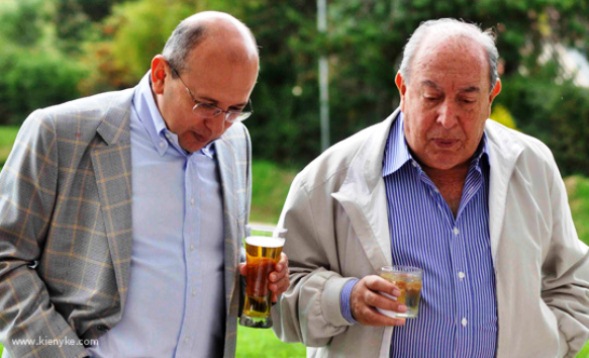
Yet AG Montealegre’s Office maintains that the FARC are neither drug traffickers or terrorists. President Santos has even asked the media to “de-escalate verbal violence” and stop using those terms to refer to the FARC. The AG’s argument, as made by prosecutors at a Justice and Peace hearing in 2014, was that there was no evidence to establish that the FARC had become an organization “dedicated exclusively to drug trafficking.” But the fact that they are also dedicated to kidnapping, extortion, sexual slavery and illegal mining, does not negate the 250 tons of cocaine exported in 2013, according to narcotics and terrorism expert Diego Corrales; or the more than 300 tons they exported in 2014, per the U.N.
Nor can the atrocities that the FARC has committed to maintain control of the drug trade be ignored. The massacre by the FARC of 34 civilians in La Gabarra, in Colombia’s northeast region, can hardly be described as a “political” crime of freedom-fighters. According to survivor accounts in El Tiempo, members of the FARC arrived at a coca-growing camp in the pre-dawn hours of June 15, 2004. They forced the workers onto the ground at gunpoint, tied them up, and shot them with AK-47s – all because the coca camp was controlled by paramilitaries, the FARC’s competitors in the drug business.
More heinous still, was the FARC’s massacre at Taraza, in December 2001. FARC members rounded up civilians in a paramilitary-run coca processing lab in the village, murdered them, and then set fire to 17 houses in the area, according to witnesses. Eleven of the deceased were found decapitated and had been dismembered with machetes or chainsaws.
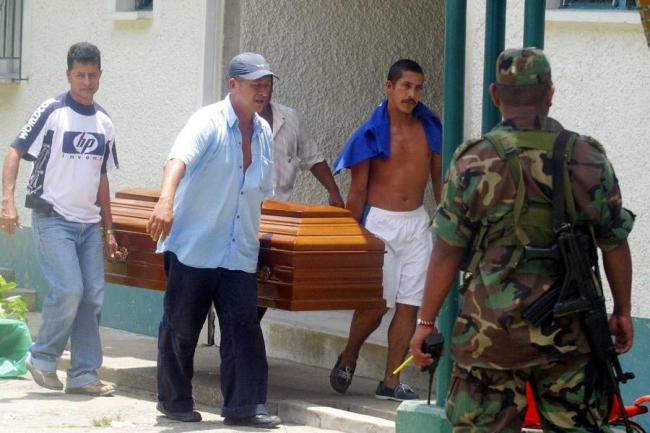
Still, President Santos claims that the Peace Process that will allow all FARC leaders to avoid jail, enable them to hold government positions and engage in politics, will end the drug problem: “We have a golden opportunity,” he said in an interview with the Washington Post, saying the FARC would help persuade farmers to stop growing coca – the same farmers the FARC has “persuaded” for decades to grow it.
Colombians aren’t buying it. A November Gallup poll showed 91 percent of the population did not support the FARC and 81 percent do not believe the FARC will stop drug trafficking. Their positions are well-founded: during the four years of the peace negotiations, coca production has increased. In fact, thanks to the FARC’s “persuasive” tactics, Colombia is once again the world’s top coca producer, as reported in the Washington Post this week. What does this mean for the U.S.? According to General John Kelly, Commander of the U.S. Southern Command, the drugs exported by the FARC result in 40,000 deaths in the U.S. every year.
As Colombians reflected this week on the 30 years since the M-19’s siege of the Palace of Justice, Jaime Castro, Colombia’s Minister of Government at the time, said in an interview: “If the assailants had triumphed, we would have been a narco-State.” That possibility is more real today than ever: Through the current peace deal, backed by the Obama Administration, the Santos government is poised to deliver the country to one of the most brutal criminal enterprises in the world. Colombians don’t deserve that. The U.S. should not support it.
@lia_fowler
*Lia Fowler is an American journalist and former FBI Agent

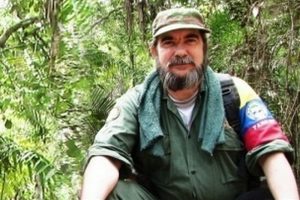
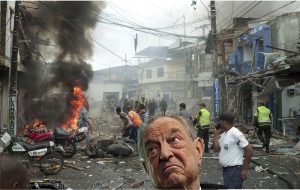
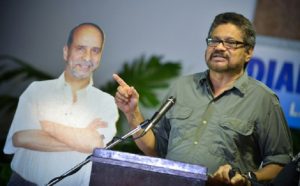
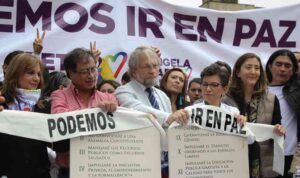
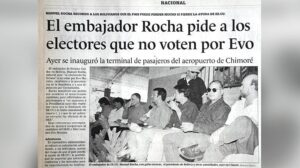
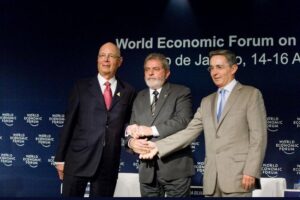
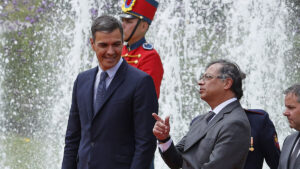
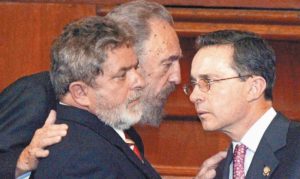
Comentarios